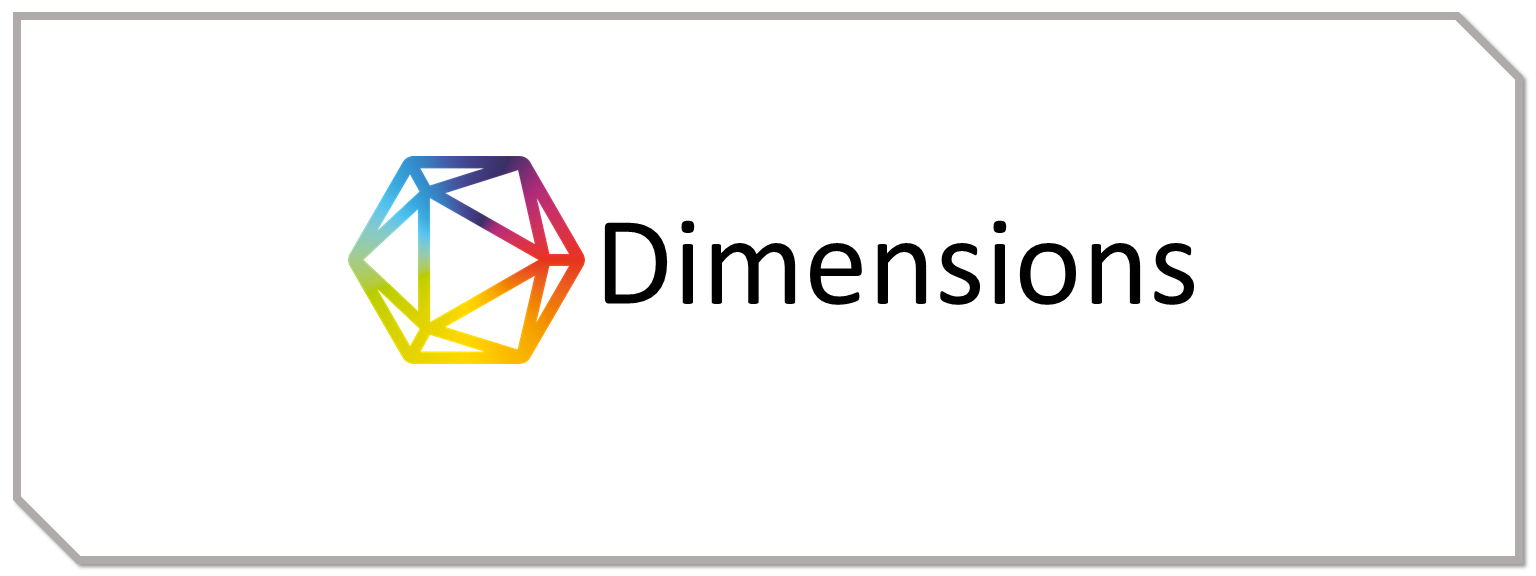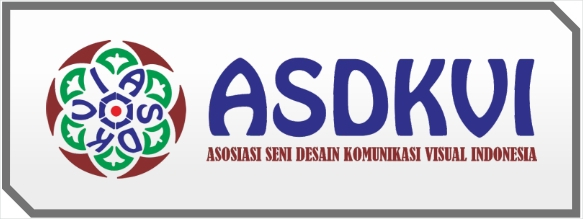Pemaknaan Pesan Dalam Komunikasi Digital
Studi Hermeneutik Pada Pengguna Media Sosial
DOI:
https://doi.org/10.59581/harmoni-widyakarya.v1i3.3724Keywords:
Digital Communication, Social Media, Hermeneutics, Message InterpretationAbstract
This research explores the meaning of messages in digital communication on social media through a hermeneutic approach. The findings show that message interpretation is strongly influenced by users' personal and social contexts, including cultural backgrounds, life experiences, and individual values. Algorithms that personalize content create 'filter bubbles' that narrow views and reinforce biases, while homogeneous online communities reinforce the meaning of certain messages in 'echo chambers'. Intercultural digital communication often suffers from misunderstandings due to differences in cultural norms and context, but users who frequently interact with other cultures show better adaptation. Emotion and empathy in digital communication often lack depth, with anonymity increasing negative behaviors such as cyberbullying. Social media enables the construction of digital identities and personal narratives that influence the meaning of messages. The implications of this research highlight the importance of digital literacy education, the development of fair algorithms, programs that support intercultural communication, and policies to address cyberbullying. This hermeneutic approach provides important insights for creating a more inclusive, empathetic and effective social media environment.
References
Tasente, T. (2023). Online communication of European public institutions and NATO during the crisis in Ukraine (February 24, 2022-December 24, 2022). Technium Soc. Sci. J., 39, 195.
Zoya, N., Sergeeva. (2023). Social media as a new institutional structure for communication. Society and security insights, doi: 10.14258/ssi(2023)1-03
Francidalma, Soares, Sousa, Carvalho, Filha. (2023). Social Media as Communication–Transformation Tools. doi: 10.1007/978-981-19-7447-2_1
Nikolić, N. T. (2023). Hermeneutics as a methodological approach to pedagogical research. Inovacije u nastavi-časopis za savremenu nastavu, 36(1), 150-161.
Rennie, D. L. (2012). Qualitative research as methodical hermeneutics. Psychological methods, 17(3), 385.
Isensee, J. (2023). Hermeneutik. Vittorio Klostermann.
Agnes, Papadopoulou. (2022). Academic Organizations: HEC – IAMCR. The International Encyclopedia of Health Communication, 1-5. doi: 10.1002/9781119678816.iehc0941
Kietzmann, J. H., Hermkens, K., McCarthy, I. P., & Silvestre, B. S. (2011). Social media? Get serious! Understanding the functional building blocks of social media. Business horizons, 54(3), 241-251.
Kalinová, E., & Kovaříková, H. (2023). Using social networks in business. In SHS Web of Conferences (Vol. 160, p. 01013). EDP Sciences.
Hasyim, M., & Arafah, B. (2023). Semiotic multimodality communication in the age of new media. Studies in Media and Communication, 11(1), 96-103.
Ghozali, M. (2022). Penafsiran al-Qur’an Retoris di Media Sosial:: Pola Persuasif Ustaz Adi Hidayat melalui YouTube. Jalsah: The Journal of Al-quran and As-sunnah Studies, 2(2), 1-31.
Khaeriyah, K., Rahman, A. A., Amirullah, I., Gentanegara, I., & Natsir, N. (2023). The effect of social media on community social change. Brilliant International Journal Of Management And Tourism, 3(1), 01-11.
Tat’yana, Lenkova. (2022). Hermeneutics as a basis for the analysis of creolized media text.. Litera, doi: 10.25136/2409-8698.2022.7.38371
Hasyim, M., & Arafah, B. (2023). Social Media Text Meaning: Cultural Information Consumption. Wseas Transactions on Information Science and Applications, 20, 220-227.
Zhou, N., Sheng, S., He, L. Y., Tian, B. R., Chen, H., & Xu, C. Y. (2023). An Integrated Approach for Analyzing the Morphological Evolution of the Lower Reaches of the Minjiang River Based on Long-Term Remote Sensing Data. Remote Sensing, 15(12), 3093.
Gutiérrez-Caneda, Beatriz, Jorge Vázquez-Herrero, and Xosé López-García. "AI application in journalism: ChatGPT and the uses and risks of an emergent technology." Profesional de la información/Information Professional 32.5 (2023).
Nyekwere, E. O., Okoro, N. M., & Azubuike, C. (2014). An assessment of the use of social media as advertising vehicles in Nigeria: A study of Facebook and Twitter. New Media and Mass Communication, 21(1), 1-8.
Nyrhinen, J., Lonka, K., Sirola, A., Ranta, M., & Wilska, T. A. (2023). Young adults' online shopping addiction: The role of self‐regulation and smartphone use. International Journal of Consumer Studies, 47(5), 1871-1884.
Aco, Jovicic. (2023). Hermeneutics. doi: 10.1093/obo/9780190221911-0125
Manfred, Becker. (2023). Übersicht. XVII-XXVI. doi: 10.5771/9783465146070-xvii
Tomkins, L., & Eatough, V. (2018). Hermeneutics: interpretation, understanding and sense-making. Cassell, Catherine; Cunliffe, Ann L. and Grandy, Gina eds. SAGE Handbook of Qualitative Business and Management Research Methods. Sage, 185-200.
de Moraes Sidi, P., & Conte, E. (2017). Hermeneutics as a methodological possibility for research in education. Ibero-American Journal of Studies in Education , 12 (4), 1942-1954.
Gibson, J. D. (2023). Digital Communications: Introduction to Communication Systems. Springer Nature.
Liu, J., Yang, Y., & Yu, H. (2022, September). The simulation of a complete digital communication system. In International Conference on Intelligent Systems, Communications, and Computer Networks (ISCCN 2022) (Vol. 12332, pp. 283-293). SPIE.
Komal, Sahota. (2022). Digital Transmission in Computer Network. 7(2):8-12. doi: 10.46610/joadc.2022.v07i02.002
Vimala, Saravanan., Murali, Ramachandran., Sowmiya, Soundharaj. (2022). Exploring Various Digital Communication and its Classification. 1, 1(1):52-57. doi: 10.46632/rne/1/1/9
Gilles, Geneix. (2023). The impact of social media on social interaction: the sociological perspective of communication. doi: 10.31219/osf.io/fjepm
J., U., A., SOUSA. (2023). The influence of social media on adolescent social interactions. doi: 10.31219/osf.io/56yc2
Francidalma, Soares, Sousa, Carvalho, Filha. (2023). Social Media as Communication–Transformation Tools. 1-11. doi: 10.1007/978-981-19-7447-2_1
Siyao, Chen. (2023). The Influence of Social Media Platforms on Self-Identity In the New Media Environment: The Case of TikTok and Instagram. SHS web of conferences, 165:01020-01020. doi: 10.1051/shsconf/202316501020
Dilan, Aktaş., Fazilet, Canbolat., Faruk, Gençöz. (2022). Qualitative Study on How Social Media Addiction Relate to Rules and Boundaries. Ayna klinik psikoloji dergis.i, doi: 10.31682/ayna.1119318
Rosha, Makvandi., Milad, Farzin. (2022). Applying qualitative approach to identify the characteristics of effective messages in eWOM communications. Management matters, 19(1):1-12. doi: 10.1108/manm-01-2022-0009
Ahmad, Noor, Hazim, Ahmad, Ghani., Hawa, Rahmat. (2023). Confirmation Bias in Our Opinions on
Social Media: A Qualitative Approach. 3(1):47-56. doi: 10.33093/jclc.2023.3.1.4
Busro, Busro., Hidayatul, Fikra. (2023). Analysis of the Flexing Phenomenon in Social Media from a Hadith Perspective with a Psychological Approach. Syaikhuna, 14(01):71-86. doi: 10.58223/syaikhuna.v14i01.6476
Giovanni, Livraga., Alessandro, Motta., Marco, Viviani. (2022). Assessing User Privacy on Social Media: The Twitter Case Study. doi: 10.1145/3524010.3539502
Sibel, Dinç. (2023). Big data from social media perspective: a case study with facebook. doi: 10.58620/fbujoss.1310830
S., Williams., Megan, D., McFarlane., Mary, Giammarino., Emily, Acker. (2023). Choosing COVID-19 treatment over prevention through vaccination: A U.S. social media case study. Qualitative Health Communication, doi: 10.7146/qhc.v2i1.133720
Kristina, Gligoric., Justyna, Czkestochowska., Ashton, Anderson., Robert, West. (2022). Anticipated versus Actual Effects of Platform Design Change: A Case Study of Twitter's Character Limit. Proceedings of the ACM on human-computer interaction, doi: 10.1145/3555659
Martin, Engebretsen. (2023). Communicating health advice on social media: A multimodal case study. MedieKultur: Journal of Media and Communication Research, doi: 10.7146/mk.v39i74.134085
Mellissa, S., Gordon., Christine, McCauley, Ohannessian. (2023). Social Media Use and Early Adolescents’ Academic Achievement: Variations by Parent-Adolescent Communication and Gender. Youth & Society, doi: 10.1177/0044118x231180317
Simon, Wan. (2023). Gender and age-specific use of social media. 23-42. doi: 10.1016/b978-0-323-95630-7.00001-9
Paul, Weigle., Pamela, Hurst-Della, Pietra., Dale, Peeples. (2022). Tiktok teens: new research reveals how social media affects mental health. 61(10):S328-S328. doi: 10.1016/j.jaac.2022.07.744
M., Mouhib. (2023). Analysis of the implementation of policies to prevent the spread of coronavirus disease 2019, case study. Singburi Province. doi: 10.58837/chula.is.2020.379
Saadat, Izadi. (2023). Human resource management in the public sector in times of crisis. Case study. Office of the State Enterprise Policy Committee and the COVID-19 epidemic crisis. doi: 10.58837/chula.is.2020.367
Benham, GP. (2023). Organizational adaptation: a case study of Thailand Post Company Limited. doi: 10.58837/chula.is.2020.371
Mei, Lin, C., Valencia., B, Peters. (2023). Factors related to motivation and barriers influencing treatment and recovery process of methamphetamine use disorder through in-depth, semi-structured, qualitative interviews. Journal of Substance Use, 1-7. doi: 10.1080/14659891.2023.2166610
Todd, Bixby., Christine, Brittle., Patricia, A., Mangan., Edward, A., Stadtmauer., Lisa, R., Kallenbach. (2023). Patient Perceptions of CAR-T Therapy in the USA: Findings from In-Depth Interviews. Oncology and therapy, 1-10. doi: 10.1007/s40487-023-00232-9
Kristy, Nabhan-Warren. (2022). Participant Observation. Fieldwork in Religion, 17(1) doi: 10.1558/firn.22582
Farooq, Mughal., Valerie, Stead., Caroline, Gatrell. (2021). Participant observation in gender and management research. 101-114. doi: 10.4337/9781788977937.00015
Gabriella, D'Agostino. (2021). Participant Observation: The Personal Commitment in Native Life—A Problematic Methodological Topos. 313-340. doi: 10.1007/978-3-030-51720-5_14
Sibel, Kusimba. (2023). Document Analysis. Springer texts in education, 139-146. doi: 10.1007/978-3-031-04394-9_23
N., Danilović. (2022). Application of the document analysis method in the social sciences. Socìalʹnì komunìkacìï: teorìâ ì praktika, 13(2):13-27. doi: 10.51423/2524-0471-2021-13-2-12
Jennifer, Cleland., Anna, MacLeod., Rachel, Ellaway. (2022). CARDA: Guiding document analyses in health professions education research. Medical Education, 57(5):406-417. doi: 10.1111/medu.14964
Hani, Morgan. (2022). Conducting a Qualitative Document Analysis. The qualitative report, doi: 10.46743/2160-3715/2022.5044
Harriet, Mowat. (2022). Interviews and Observation. 382-392. doi: 10.1002/9781119756927.ch37
Adeagbo, Oluwafemi., Adeagbo, Oluwafemi., S., Xulu., Nondumiso, Dlamini., M., Luthuli., Thembani, Mhlongo., Carina, Herbst., Maryam, Shahmanesh., Janet, Seeley. (2021). Transcription as a Key Phase of Data Analysis in Qualitative Research: Experience from KwaZulu-Natal, South Africa:. Field Methods, 33(4):417-423. doi: 10.1177/1525822X21989482
Catherine, F., Nicholas., Lou, Clark., Karen, Szauter. (2019). Transcription and Data Management. 121-126. doi: 10.1007/978-3-030-26837-4_17
Yonghe, Lu., Wenqiu, Liu., Xinyu, He. (2015). A text feature selection method based on category-distribution divergence. 4(2):143-148. doi: 10.5430/AIR.V4N2P143
Bogdan, Maksak., Jose, Marcos, Rodriguez, Fernandez., Conan, McMurtie., Mahyar, Bordbar. (2018). Message text labelling.
Ma, Liangzhuang. (2019). Method and device for determining text categories.
Sourav, Sundar, Das. (2022). The contribution of a hermeneutic approach to investigate psychological variables in second language acquisition. Frontiers in Psychology, 13 doi: 10.3389/fpsyg.2022.1055249
Dar'ia, Aleksandrovna, Varsonova. (2022). Hermeneutical Approach in Understanding Intercultural Communication. doi: 10.31483/r-101968
Leela, Ramsook. (2018). A Methodological Approach to Hermeneutic Phenomenology. International journal of humanities and social sciences, 10(1):14-24.
Charlene, A., VanLeeuwen., Linyuan, Guo-Brennan., Lori, E., Weeks. (2017). Conducting Hermeneutic Research in International Settings: Philosophical, Practical, and Ethical Considerations. doi: 10.11575/JAH.V0I0.53309
Moana, Rarere., John, G., Oetzel., Bridgette, Masters-Awatere., Nina, Scott., Ray, Wihapi., Carey, Manuel., Rewa, Gilbert. (2019). Critical reflection for researcher–community partnership effectiveness: the He Pikinga Waiora process evaluation tool guiding the implementation of chronic condition interventions in Indigenous communities. Australian Journal of Primary Health, 25(5):478-485. doi: 10.1071/PY19022
Rachel, Hagues. (2021). Conducting critical ethnography: Personal reflections on the role of the researcher. International Social Work, 64(3):438-443. doi: 10.1177/0020872818819731
Priyanka, Pandey. (2023). Triangulation as a Research Method in Experimental Linguistics. Lecture Notes in Computer Science, 109-120. doi: 10.1007/978-3-031-24340-0_9
Laura, L., Lemon., Jameson, L., Hayes. (2020). Enhancing Trustworthiness of Qualitative Findings: Using Leximancer for Qualitative Data Analysis Triangulation. The Qualitative Report, 25(3):604-614. doi: 10.46743/2160-3715/2020.4222
Gabriela, López-Zerón., M., Isidora, Bilbao-Nieva., Kathryn, A., V., Clements. (2021). Conducting Member Checks With Multilingual Research Participants From Diverse Backgrounds. 2(2):24412-. doi: 10.35844/001C.24412
Amber, G., Candela. (2019). Exploring the Function of Member Checking. The Qualitative Report, 24(3):619-628. doi: 10.46743/2160-3715/2019.3726
Amit, Saxena. (2022). Audit Trail in Pharma: A Review. Asian Journal of Pharmaceutical Research, 359-363. doi: 10.52711/2231-5691.2022.00056
Delphine, Eeckhout., Karolien, Aelbrecht., Catherine, Van, Der, Straeten. (2022). Informed Consent: Research Staff's Perspectives and Practical Recommendations to Improve Research Staff-Participant Communication. Journal of Empirical Research on Human Research Ethics, 18(1-2):3-12. doi: 10.1177/15562646221146043
Manoj, Kumar., Irfan, Alam. (2023). A novel authentication protocol to ensure confidentiality among the Internet of Medical Things in covid-19 and future pandemic scenario. Internet of things, 22:100797-100797. doi: 10.1016/j.iot.2023.100797
Natasha, Kuhrt. (2022). Confidentiality and data protection. 421-429. doi: 10.4337/9781800885783.00027
Manoj, Goyal., Monika, Bansal. (2023). Publication of identifying information and protection of research participants. Journal of Datta Meghe Institute of Medical Sciences University, 18(2):345-346. doi: 10.4103/jdmimsu.jdmimsu_290_20
Ioannis, Basdekis., Christos, Kloukinas., Carlos, Agostinho., Luigi, Gallo., George, Spanoudakis. (2023). Pseudonymisation in the context of GDPR-compliant medical research. 1-6. doi: 10.1109/DRCN57075.2023.10108370
Reijo, Sund. (2012). Quality of the Finnish Hospital Discharge Register: a systematic review.. Scandinavian Journal of Public Health, 40(6):505-515. doi: 10.1177/1403494812456637
Maria, K., E., Lahman., Rowen, Thomas., Eric, D., Teman. (2022). A Good Name: Pseudonyms in Research. Qualitative Inquiry, 29:678-685. doi: 10.1177/10778004221134088
Oscar, R., Diamante. (2019). Social Media and the Hermeneutics of Participation in the Digital Culture. 92(2):142-171. doi: 10.31944/2019922.07
John, Thøgersen. (2023). The importance of the context. 76-87. doi: 10.4337/9781803924519.00012
Emily, Bouwman., Machiel, J., Reinders., Joris, Galama., M.C.D., Verain. (2022). The Impact of Both Individual and Contextual Factors on the Acceptance of Personalized Dietary Advice. Nutrients, 14(9):1866-1866. doi: 10.3390/nu14091866
Siqi, Dai., Kai, Chen., Rui, Jin. (2021). The effect of message framing and language intensity on green consumption behavior willingness. Environment, Development and Sustainability, 1-21. doi: 10.1007/S10668-021-01540-8
Hui, Liu., Shuang, Lu., Ximeng, Wang., Shaobo, Long. (2021). The Influence of Individual Characteristics on Cultural Consumption from the Perspective of Complex Social Network. Complexity, 2021(2021):1-14. doi: 10.1155/2021/7404690
Muh., Yusuf, T. (2023). Social dynamics in the digital era: a case study of social interaction and cultural change in social media. doi: 10.31219/osf.io/sxrwf
Giacomo, Albi., Elisa, Calzola., Giacomo, Dimarco. (2023). A data-driven kinetic model for opinion dynamics with social network contacts. arXiv.org, abs/2307.00906 doi: 10.48550/arXiv.2307.00906
Bart, Nooteboom. (2022). Social Dynamics. Journal of research in philosophy and history, 5(3):p31-p31. doi: 10.22158/jrph.v5n3p31
Vikram, Krishnamurthy. (2022). Dynamics of Social Networks: Multi-agent Information Fusion, Anticipatory Decision Making and Polling.
Kateryna, Kalynets. (2023). Dilemma of ambiguity in personal brand understanding. Economic scope, doi: 10.32782/2224-6282/183-11
Eric, Tham. (2022). Ambiguous Text. Journal of Behavioral Finance, 1-13. doi: 10.1080/15427560.2022.2037600
Yaroslav, Yanenko. (2022). Socio-psychological features of the texts of media messages. Образ, 39(2):15-25. doi: 10.21272/obraz.2022.2(39)-15-25
Esther, Thorson. (2023). Emotion in Processing Advertising and News. Journalism & Communication Monographs, 25(2):181-192. doi: 10.1177/15226379231167136
Carolina, Escudero. (2023). Communication and emotions: the art of distinguishing, processing, and reacting. Insights into Language, Culture and Communication, 3(1):01-01. doi: 10.21622/ilcc.2023.03.1.001
Marija, Ljubičić., Marijana, Matek, Sarić., Ivo, Klarin., Ivana, Rumbak., Irena, Colić, Barić., Jasmina, Ranilović., Boris, Dzelalija., Ana, Sarić., Dario, Naki., Ilija, Djekic., Małgorzata, Korzeniowska., Elena, Bartkiene., Maria, Papageorgiou., Monica, Tarcea., Maša, Černelič-Bizjak., Dace, Klava., Viktória, Szűcs., Elena, Vittadini., Dieuwerke, P., Bolhuis., Raquel, Guiné. (2023). Emotions and Food Consumption: Emotional Eating Behavior in a European Population. Foods, 12(4):872-872. doi: 10.3390/foods12040872
Tatiana, Darie. (2023). The role of emotional marketing for an enterprise. doi: 10.53486/9789975359030.35
Zhila, Aghajari., Eric, P., S., Baumer., Dominic, DiFranzo. (2023). What’s the Norm Around Here? Individuals’ Responses Can Mitigate the Effects of Misinformation Prevalence in Shaping Perceptions of a Community. doi: 10.1145/3544548.3580946
Kenneth, S., Greenberg. (2023). Community. 215-241. doi: 10.1007/978-3-031-18215-0_11
Jonathan, Chang., Charlotte, Schluger., Cristian, Danescu-Niculescu-Mizil. (2022). Thread With Caution: Proactively Helping Users Assess and Deescalate Tension in Their Online Discussions. Proceedings of the ACM on human-computer interaction, 6(CSCW2):1-37. doi: 10.1145/3555603
Liza, Potts., Michael, Trice. (2022). Digital Community Moderation Values: Politics, News, and Hot Beverages on Reddit. 133-139. doi: 10.1109/ProComm53155.2022.00028
Fan, Peng, Kong., Yuan, Li., Houssam, Nassif., Tanner, Fiez., Shreya, Chakrabarti., R., Henao. (2023). Neural Insights for Digital Marketing Content Design. arXiv.org, abs/2302.01416 doi: 10.1145/3580305.3599875
Iris, Itzel, Curiel, Jiménez., Ana, Laura, Hernández, Barreto., Janik, Pérez, Granados., Carlos, Abraham, Almazan, Guzman. (2022). Marketing Digital. doi: 10.23882/eb.22.7377
João, S., Oliveira., Kemefasu, Ifie., Martin, Sykora., Eleni, Tsougkou., Vitor, Castro., Suzanne, Elayan. (2022). The effect of emotional positivity of brand-generated social media messages on consumer attention and information sharing. Journal of business research, doi: 10.1016/j.jbusres.2021.11.063
Burhanuddin, Arafah., Muhammad, Muchlish, Hasyim. (2023). Digital Literacy: The Right Solution to Overcome the Various Problems of Meaning and Communication on Social Media. Studies in Media and Communication, doi: 10.11114/smc.v11i4.6003
Jian-Feng, Nie. (2023). Media literacy and digital citizenship. doi: 10.1016/b978-0-12-818872-9.00144-8
Rodney, H., Jones. (2022). Commentary: Critical Digital Literacies as Action, Affinity, and Affect. TESOL Quarterly, doi: 10.1002/tesq.3153
Downloads
Published
How to Cite
Issue
Section
License
Copyright (c) 2023 Almadina Rakhmaniar

This work is licensed under a Creative Commons Attribution-ShareAlike 4.0 International License.

















